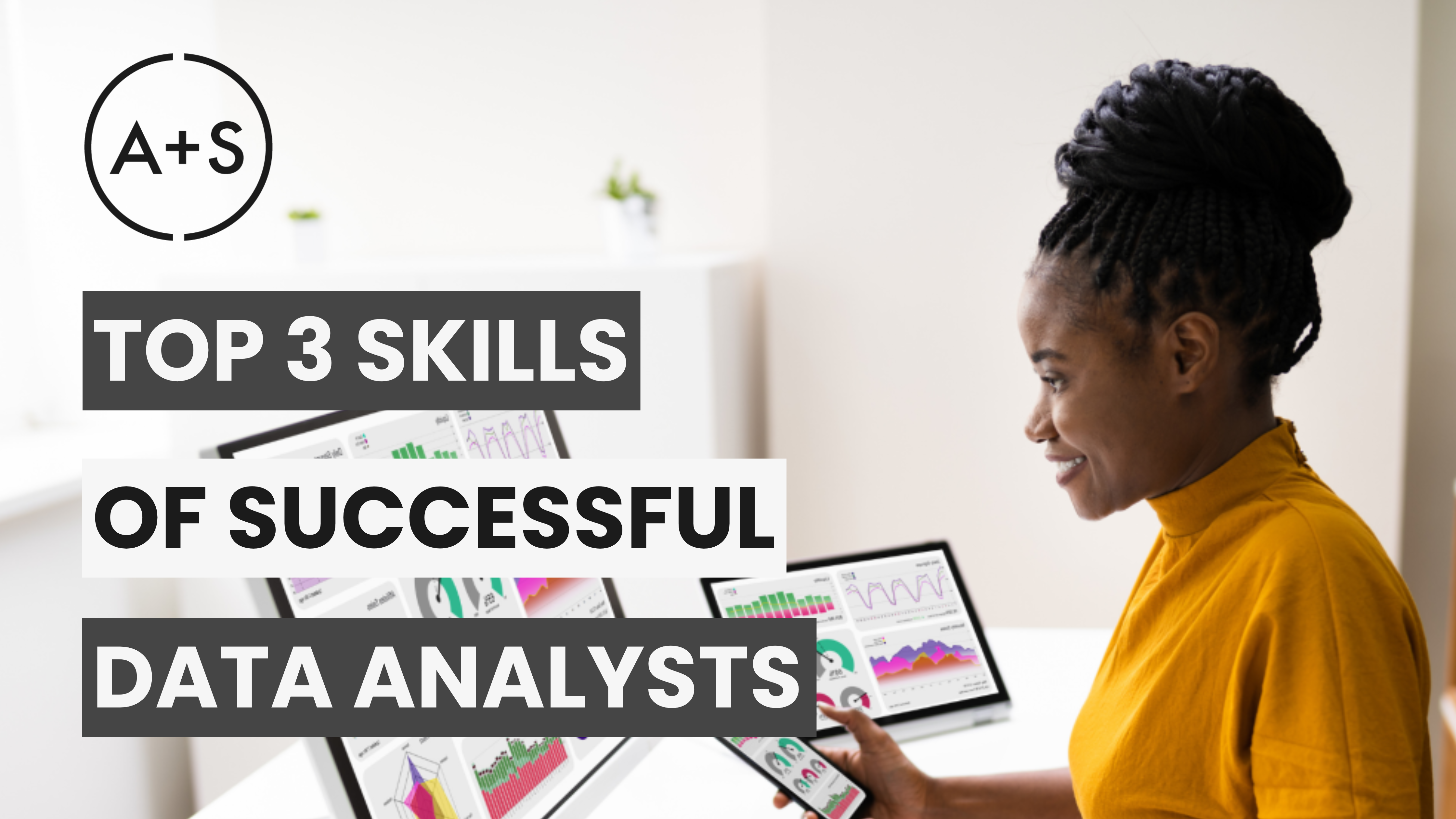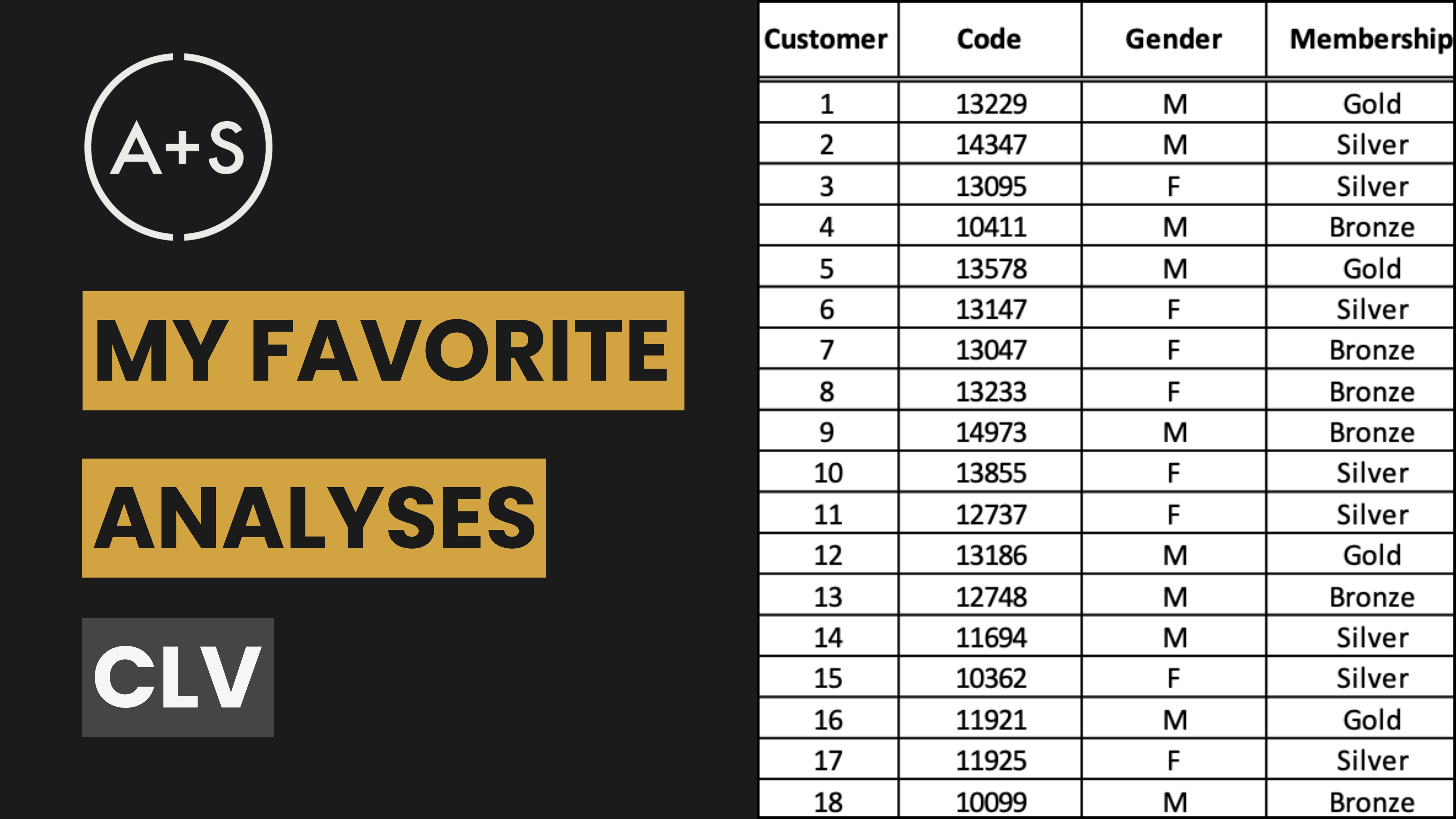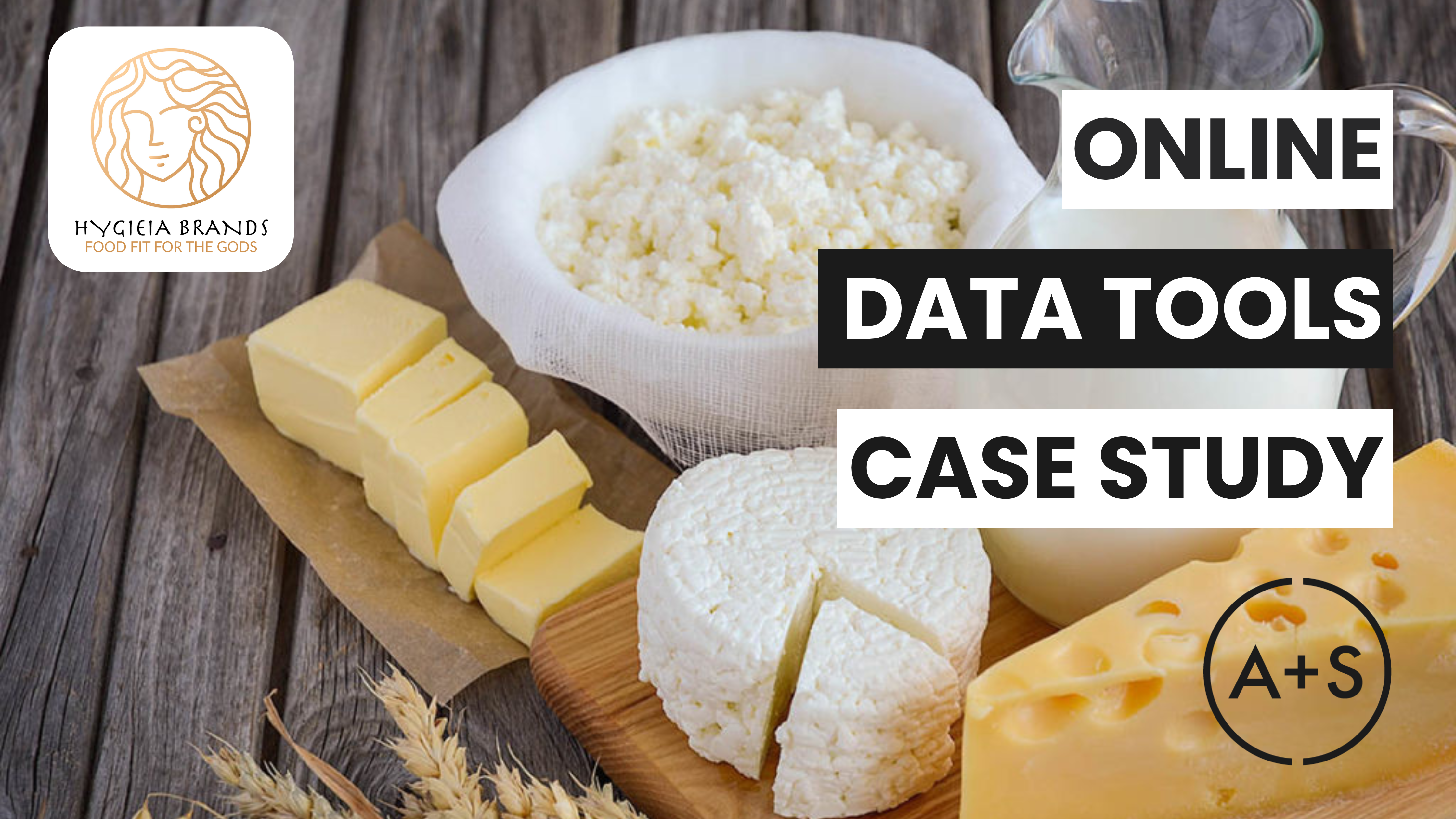As technology continues its advance and data accumulates at an exponential rate, being a data analysts puts you right at the center of all that change. It can be overwhelming for anyone currently working as or aspiring to become a data analyst to determine which skills are most important to their growth and advancement. I’ve had the good fortune of hiring hundreds of data professionals and teaching thousands more. From my experience, there are three top skills that stand out among all others.
At a high-level, those three specific capabilities are: strategic skills, technical proficiency, and data design expertise.
Having these valuable abilities enables the analyst to utilize data effectively for the benefit of the organization. With the skill to diagnose business challenges, the ability to sift through large amounts of information, and strong communication skills, an analyst becomes an important asset to the organization. (The link near the bottom of this post will get you to a comprehensive list of resources data analysts can use for gaining practical experience and developing these skills).
Let’s take a more detailed look now at each of these three skills and the opportunities you have to build them.
Strategist Skills
The first crucial trait of a successful data analyst is strategic thinking, which allows you to bridge the gap between the data and business worlds. But what exactly does it take to be an effective strategist?
It means having strong critical thinking skills. You possess the ability to break down complex situations into more manageable parts. You can identify patterns and draw conclusions based on your understanding. As a strong critical thinker, you can back up your inferences with data and have the capacity for reflection. This means you can thoughtfully assess your work, avoid mistakes, identify and challenge bias, and allow your intuition to surface.
It means you are good at problem-solving. These skills stem from your ability to identify and acknowledge the existence of a problem. Once a problem has been recognized, you should be able to come up with practical solutions to resolve it. You must then evaluate these potential solutions based on various factors that are important for the organization, such as the time it will take to implement or the expected impact. Lastly, you must possess strong implementation skills to effectively bring your chosen solution from the planning stage to execution.
Just as essential to strategy skills as critical thinking and problem-solving is industry knowledge. Understanding the industry you’re working in provides the necessary context for analyzing business problems. You understand its inner workings, use the appropriate terminology, and know how to identify and access relevant data. Whether specialized in a particular business vertical such as automotive or retail or gained in a broader function like Human Resources or Marketing, your experience allows you to work as a strategist with greater efficiency.
Techie Skills
In addition to strategic skills, a data analyst must also possess strong technical skills. While your strategic skills require a complex blend of higher-order thinking skills, technical skills are more straightforward. As the owner of data, you must be proficient in collecting and managing it in ways that ensure accuracy and promote effectiveness.
A proficient technical specialist possesses an extensive understanding of various data tools that allow them adeptly collect and manage data. While these abilities are often associated with roles like Data Scientist and Data Engineer, they are equally crucial for a Data Analyst. Important skills begin with the use of basic tools such as spreadsheets and move through to the ability to use more advanced tools like SQL, R, and Python. Specific technical competencies may be required depending on the source of data or systems used, such as Google Cloud or AWS. Ultimately, having these skills empowers an analyst to efficiently bring large volumes of data to a project, making them more effective in their role.
Data Design Skills
The third essential skill is data design. A data analyst must be an effective communicator who can convey data stories to stakeholders who may not have the same technical knowledge, lack context on the business problem being addressed, and (certainly) have not spent as much time sifting through the data.
A successful Data Designer possesses strong creativity and can transform insights into lasting visuals. They utilize various tools such as Tableau, PowerBI, Qlick or even R and Python for more advanced visualizations made from complex data. If the data analyst is presenting through dashboards, proficiency in dashboard-specific tools like Looker Studio can come in handy.
Often over-looked by analysts seeking to be strong Data Designers is the mastery of presentation tools like Google Slides, PowerPoint, or Keynote. A growing number of web-based digital tools like Canva are becoming more important here, too. For the foreseeable future, stakeholders will continue to expect data analysts to use presentation software for delivering reports and communicating in meetings. Therefore, having proficiency in these tools is just as essential for data analysts as their ability to use tools to analyze and visualize data.
Yet knowing how to use tools may not be as important as having a strong understanding of what makes for effective data visualization. This requires a thorough grasp of the power of contrast, how to combine different elements in a chart to clearly convey insights, and how to add visual polish to charts that minimizes distractions and creates visually appealing designs. Strength in these areas help you in design data in ways that resonates with your audience and effectively conveys memorable messages.
The Art+Science Mind
The combination of these three distinct skills is what I like to refer to as the “Art+Science Mind.” When all three are in harmony, you are optimally equipped to handle any analytics task and effectively convey your stories engagingly and persuasively.
But it is important to understand that these three skills are connected and build on each other. They work together. Your abilities as a data strategist are only going to shine if you can collect and analyze data to develop meaningful stories. And the stories you want to tell will only be successful if they are designed in the right way. Indeed, weaknesses in any one of these three areas limit the analyst’s abilities in all, making it vital to maintain a balanced approach to developing these essential skills.
How Do You Build These Skills?
Developing these skills can be achieved through various avenues, such as formal education, online certifications, and self-directed hands-on experience. These opportunities are valuable for data analysts looking to enhance their capabilities.
In the world of formal education, from two-year degrees to four-year universities and master’s programs, we have witnessed a change in the curriculum as it adapts to current trends. These programs now emphasize the importance of practical skills such as R and Python, effective communication skills, and in-depth exposure to specific industries through specialized courses of study (for instance, MBA students at Notre Dame can choose to focus on Real Estate, Operations & Supply Chain Management, or other targeted areas).
If the time and expense of formal education doesn’t fit into the analyst’s plans, there are plenty of opportunities for skill building through online certifications and courses. These programs are becoming more prevalent and are easily accessible. There are various options available for learning broad topics or specific skills. These include platforms like LinkedIn Learning and Udemy, industry expert-led courses on Section or ELVTR, and free training resources like Tableau’s training library.
Yet the most effective way for analysts to gain knowledge and skills is hands-on experience. This can be achieved through on-the-job learning, if their current role allows for data analysis tasks. If not, analysts can enhance their abilities by working on case studies and building a portfolio of their work, taking part in internships or project work, and seeking out opportunities to gain experience in different tools and industries. The freedom to direct their own learning experience is a powerful advantage for analysts taking a hands-on learning approach.
At Art+Science, we maintain a comprehensive list of resources that data analysts can utilize for gaining practical experience and developing their skills. You can find that resource here: tinyurl.com/analyst-resources. Make sure you bookmark that page and revisit often, as we update it frequently.
With so many skill-building opportunities, what becomes really important is that the analyst possesses the self-understanding to know where they have skill gaps and the self-motivation to seek out formal education, an online certification, or independent hands-on projects to address these gaps.
In Summary
In summary, analyst should focus on building skills in these three areas:
-
Strategist: The capacity to think critically and solve problems effectively while possessing a deep understanding of industry practices.
-
Techie: Comprehension of the technological tools utilized to aid analysts in gathering, organizing, and interpreting data.
-
Data Designer: Proficiency in translating data into impactful and visually appealing presentations, utilizing creativity, knowledge of visualization and presentation tools, and an expert understanding of effective chart design.
By honing in on these three critical functions, data analysts can bring a sense of direction and simplicity to their often complex role. And by developing proficiency in each of these areas, the analyst will excel as a data expert and distinguish themselves from others in their field.



